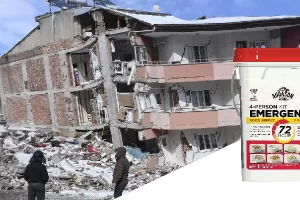Traveling to the Middle East can be a fascinating and rewarding experience. However, it’s important to prioritize your safety and take precautions to ensure a smooth and secure journey. Here are some tips to help you stay safe while traveling in the Middle East:
- Research your destination
Before your trip, gather information about your specific destination. Learn about the local customs, traditions, and laws, as well as any current travel advisories or political unrest in the region.
- Register with your embassy
Inform your embassy or consulate about your travel plans. Registering with them will allow them to reach out to you in case of emergencies or if there are any safety concerns.
- Check travel advisories
Stay updated on travel advisories issued by your government or international organizations. These advisories provide valuable information about safety concerns, political unrest, or health risks in specific areas.
- Dress modestly and respect local customs
In many Middle Eastern countries, conservative dress is expected, especially in religious or rural areas. Dressing modestly and respectfully will help you blend in and show cultural sensitivity.
- Be cautious with photography
Respect the local customs regarding photography. In some areas, it may be prohibited to take photos of certain buildings, military installations, or local people, particularly women.
- Stay aware of your surroundings
Maintain situational awareness wherever you go. Be mindful of your belongings and avoid displaying signs of wealth. Keep an eye out for any suspicious activities or individuals.
- Use reliable transportation
Opt for official taxis or reputable transportation services. Avoid accepting rides from strangers, especially at night. If possible, arrange transportation in advance through your hotel or trusted sources.
- Secure your accommodations
Choose reputable hotels or accommodations with good security measures. Lock your doors and windows, and use the hotel safe to store your valuables. If you’re staying in a rented apartment or house, ensure it has adequate security measures.
- Avoid public demonstrations or protests
Political demonstrations can sometimes escalate quickly. Stay away from large gatherings or protests, as they can turn unpredictable or potentially dangerous.
- Stay connected and share your itinerary
Keep your loved ones informed about your travel plans. Share your itinerary, including accommodation details and contact information, with a family member or friend. Stay connected through regular check-ins or updates.
- Use secure communication
When accessing the internet or making online transactions, be cautious about using public Wi-Fi networks. Consider using a virtual private network (VPN) to ensure secure and encrypted connections.
- Respect local laws and customs
Familiarize yourself with the local laws and regulations of the country you’re visiting. Respect cultural traditions and customs, including restrictions on alcohol, public displays of affection, or religious practices.



